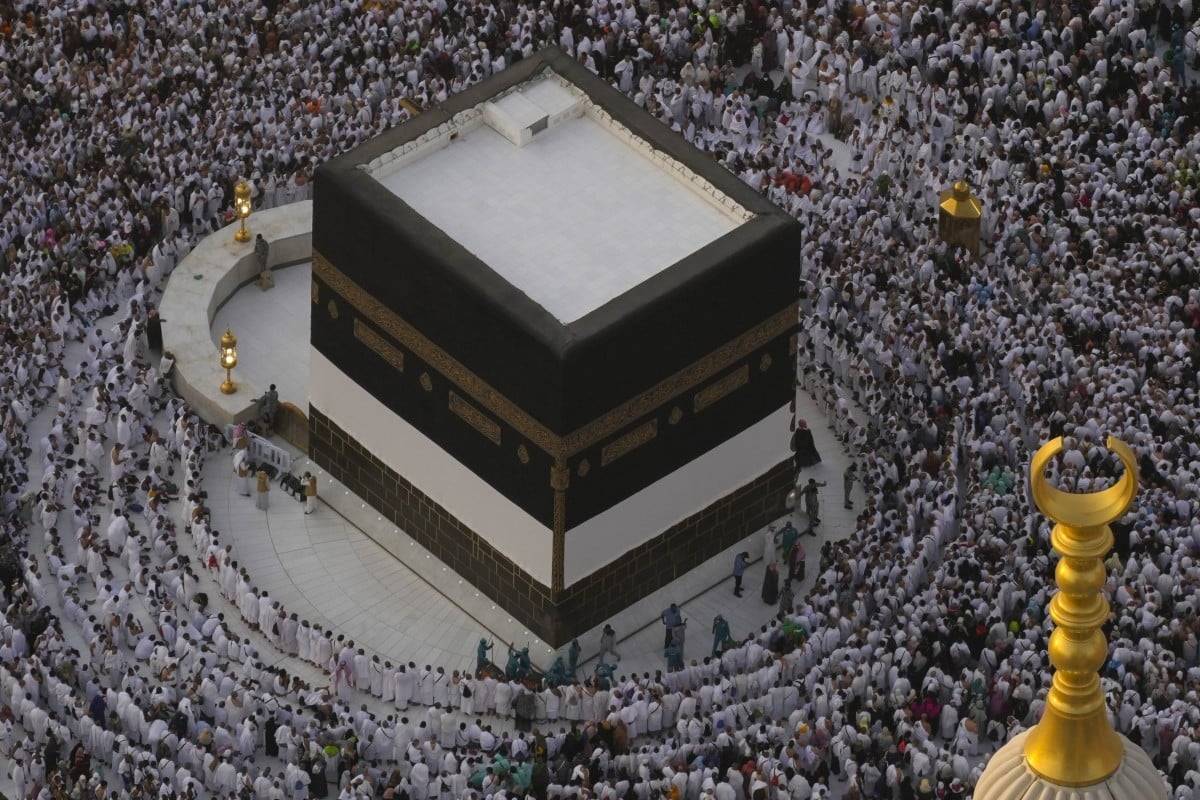2186 Views
From Mecca to Gaza: Will This Hajj Spark a Muslim Revolt against Israel?
Since the victory of the Islamic Revolution in Iran, one of the Iranian leadership’s enduring strategic priorities has been promoting Muslim unity around causes such as the liberation of Palestine. While the issue of al-Quds holds deep significance among Muslim populations, many Islamic governments have in recent years attempted to marginalize it by aligning with compromise policies toward the Zionist regime.
The eruption of the Al-Aqsa Flood Operation and the ensuing atrocities committed by Israel against the people of Gaza sparked massive global protests in solidarity with the oppressed Palestinians. As millions of Muslims gather for the Hajj pilgrimage in the month of Dhu al-Hijjah, this spiritual congregation offers a vital opportunity to voice collective outrage against the ongoing genocide in Palestine.
In his annual address to the pilgrims of the Islamic world, Iran’s Supreme Leader, Ayatollah Khamenei, once again delivered a powerful message, emphasizing both spiritual and political dimensions. He drew connections between monotheistic teachings and social responsibility, urging Muslims to align their material lives with the divine lessons taught by the prophets. One key aspect of this message was the emphasis on truth-seeking as a central component of a God-centered life.
Learning the Lessons of Monotheistic Life
In emphasizing monotheistic principles, the Leader of Iran's Revolution seeks to bridge the connection between Muslims' spiritual and material lives. Drawing upon the unwavering devotion to divine guardianship demonstrated by God's prophets throughout their lives, he counseled Muslims to reflect on these matters. A key aspect of the Leader's vision for monotheistic living is the pursuit of justice.
The Islamic world today witnesses the unprecedented massacre of Palestinian Muslims. According to the Leader, “Had the monotheistic teachings of God's prophets guided the people of the region, the Zionist regime could never have committed such atrocities within Muslim lands, nor would Islamic governments have remained passive, limiting themselves to mere expressions of regret. This year's Hajj presents an opportunity for remembrance and a return to the pure Muhammadan (PBUH) principles."
Unity among Islamic Governments for Effective Action to Stop the Slaughter in Palestine
Given their significant potential, regional Islamic governments could take concrete measures such as:
- Opening shared borders with Palestine
- Expanding food and humanitarian aid to the Palestinian people
- Imposing economic sanctions to weaken the foundations of the illegitimate Zionist regime
Another impactful joint action would be compelling the United States to withdraw its extensive support for Israel—a feasible move given the Islamic governments' substantial economic ties with Washington. With genuine determination, these states could meaningfully alleviate the suffering of the Palestinian people.
If received with goodwill, the Iranian Leader’s call for decisive action in these areas could mark a critical step toward ending the massacre of oppressed Palestinians.
Empowering the Muslim Masses
Beyond state actors, the Leader also appealed to the power of the Muslim people .The Muslim masses hold immense potential to become a driving force for Palestine by pressuring their governments into meaningful action. Large-scale protests across Islamic nations could serve as a wake-up call, compelling passive regional governments to confront the brutal reality in Palestine.
Post-Hajj, Islamic scholars and influential figures must prioritize what matters most: stopping the unprecedented slaughter of Palestinian Muslims. Social media personalities with massive followings should leverage their platforms to:
- Clearly explain the Palestinian cause
- Push Islamic governments to support the Resistance movement
- Guide policymakers toward concrete actions for Al-Quds' liberation
Iran's Leader has rightly emphasized that grassroots pressure from Muslim nations can amplify support for Palestinian resistance - the only true path to freedom. When Hajj pilgrims return home with this message, they can:
- Strengthen popular backing for Palestine
- Double the morale of the anti-compromise movement
- Expose the hypocrisy of normalization efforts
The message from Hajj pilgrims, upon returning to their respective nations, can further strengthen support for Palestinian resistance and boost the morale of anti-compromise forces fighting the Zionist occupation.
Overall, it must be said that the Palestinian people’s resistance has created enduring scenes of resilience and endurance in the face of hardship in the late 21st century. This carries a clear message to the world: as long as oppression and crimes persist, true peace and tranquility will remain out of reach. The message of the Leader of the Islamic Revolution of Iran affirms this logic, calling on the people of the world—especially the Muslim nations—to unite in order to confront and stop the criminal nature of the brutal Zionist regime.
This message encompasses both the personal dimension of self-purification and the collective responsibility toward the issues of the Islamic world. In essence, it serves as a manifesto for living a life in accordance with Islamic principles. It is hoped that Islamic countries and their governments will grasp the depth of this message, adopt a monotheistic way of life inspired by the conduct of divine prophets, and commit to supporting the Palestinian resistance.
*Translated by Ashraf Hemmati from the original Persian article written by Amirali Yeganeh

Comment
Post a comment for this article